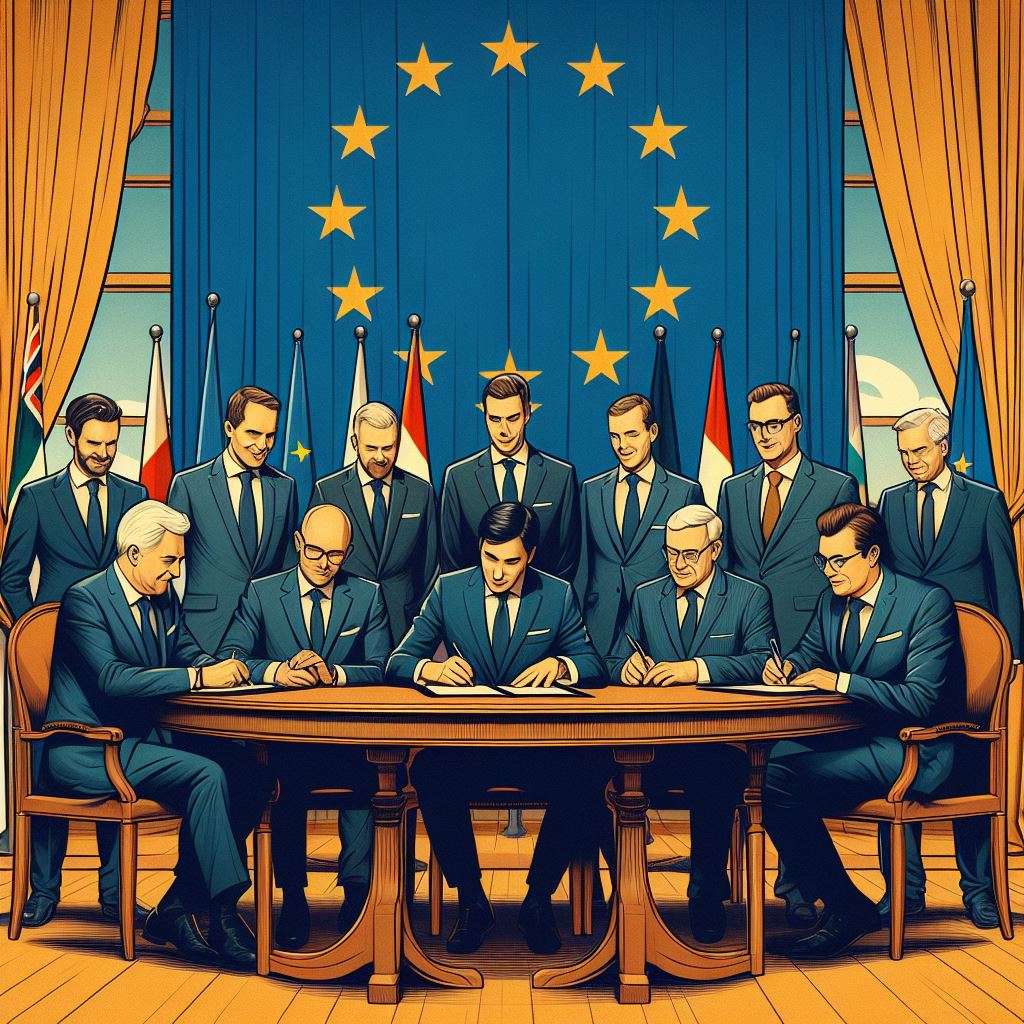Editor’s Notes:
- Groundbreaking Legal Framework: The Council of Europe adopted the first legally binding international treaty on AI, regulating its entire lifecycle and involving 46 member states plus non-European countries like the U.S. and the Vatican.
- Protection of Rights and Democracy: The treaty ensures AI systems do not undermine democratic institutions, mandates transparency, and upholds human rights, including gender equality and non-discrimination.
- Global and Flexible Compliance: Open to non-European nations, the treaty allows flexible compliance methods to suit various legal systems and requires independent oversight to maintain transparency and accountability.
On 17th May, a pivotal moment in technological governance occurred as Europe’s top organization adopted the world’s firs legally binding international treaty on artificial intelligence (AI). The Council of Europe, a leading human rights organization, has established a comprehensive framework to regulate AI, aiming to ensure its responsible use while safeguarding human rights, democracy, and the rule of law.
A Historic Agreement
The “Framework Convention on Artificial Intelligence, Human Rights, Democracy, and the Rule of Law” was officially adopted at the Council of Europe’s annual ministerial meeting in Strasbourg. This groundbreaking treaty, the result of two years of collaborative efforts among 46 member states, including non-European countries like the United States and the Vatican, is designed to address the entire lifecycle of AI systems—from design and development to deployment and decommissioning.
Ensuring Responsible AI Use
The treaty emphasizes a risk-based approach, mandating that AI systems do not undermine democratic institutions or processes. It requires transparency and oversight measures, such as clearly identifying AI-generated content. Parties to the treaty must adopt measures to identify, assess, prevent, and mitigate potential risks associated with AI. Additionally, the framework allows for flexibility in compliance, acknowledging the diversity of legal systems worldwide.
Global Collaboration and Participation
This convention is open to non-European countries, reflecting a global consensus on the need for a unified legal framework for AI. The treaty also covers AI use in both public and private sectors, promoting a balance between innovation and regulation. The Council of Europe highlights the importance of ensuring AI respects human rights, including gender equality and the prohibition of discrimination.
Protecting Democracy and Human Rights
To safeguard democratic institutions, the treaty stipulates that AI applications must not interfere with democratic processes. It also establishes that national defense and research activities related to AI must adhere to international law and democratic principles. An independent oversight mechanism will be implemented by each party to ensure compliance with the treaty, fostering transparency and accountability.
The Road Ahead
The official signing ceremony of the treaty will take place in Vilnius, Lithuania, on September 5th, during the Conference of Justice Ministers. This event marks the beginning of a new era in AI regulation, where technological advancement is harmonized with the protection of fundamental human values.
In March, the European Parliament had already adopted extensive rules governing AI, aimed at protecting citizens from rapid technological developments while fostering innovation. This new treaty builds on those efforts, setting a global standard for AI regulation.
Conclusion
The Council of Europe’s adoption of the first legally binding international treaty on AI is a monumental step toward responsible AI governance. By creating a robust legal framework, this treaty ensures that AI development and usage will uphold human rights, democracy, and the rule of law, setting a precedent for nations worldwide to follow. As AI continues to transform our world, such initiatives are crucial in ensuring that technological progress benefits all of humanity without compromising our core values.
Referencing:
- https://www.ndtv.com/world-news/europes-top-rights-organisation-adopts-first-international-treaty-on-ai-5687107
- https://www.neowin.net/news/the-first-international-treaty-on-artificial-intelligence-adopted-by-the-council-of-europe/
- https://www.cryptopolitan.com/council-of-europe-adopts-first-ai-treaty/

